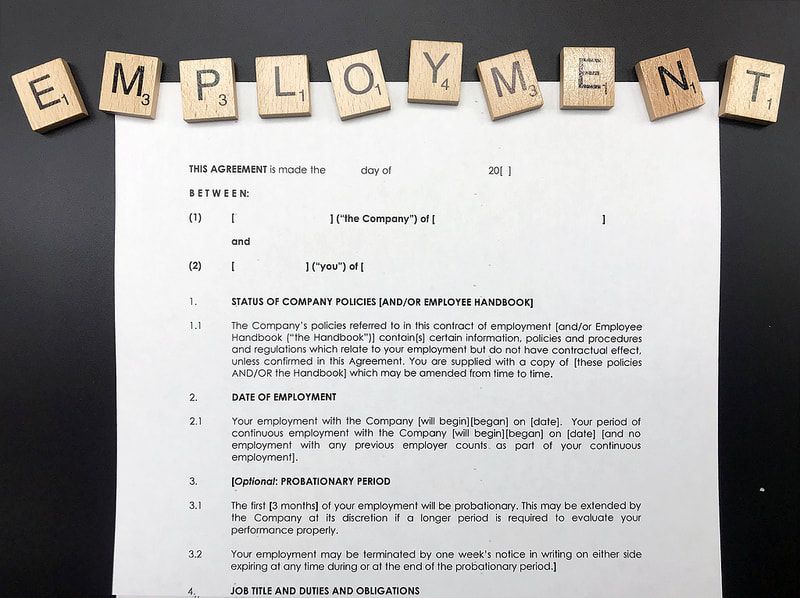Employment law in 2019 - what can we expect

The Employment Relations Amendment Act was finally passed in December signalling the start of employment law changes by the Labour government. With these legislative amendments we will see changes throughout the employment sector during this next year. We can also expect changes in the coming year to supporting legislation to align with the amendments made to this act.
Adios to Trial Periods (effective 6 May, 2019) – Trial Periods will no longer be able to be included in the terms of employment for businesses with 20 or more employees. This could potentially have an effect on employment rates and see the reintroduction of Probationary Periods.
- Pay Equity – The Pay Equity Bill was introduced in September 2018 aiming to eliminate gender-based discrimination in female dominated roles as well as improving the process of both raising and progressing claims. While the select committee is due to report on the Bill in April this year, several public sector roles such as teacher aides, social workers and mental health workers were able to reach settlements in 2018. Settlements are expected to continue through 2019 for the public sector.
- Changes to Holiday Pay – In May 2018, the Holiday Act task force was formed with the purpose of reviewing the current legislation due to significant non-compliance of the Holiday Act 2003. Legislative change won’t happen in the coming year, but it is likely the report will drive reform in this area.
- Domestic Violence in Employment – Those affected by domestic violence will be entitled to up to 10 days paid leave from 1 April 2019. This leave can be taken in a similar way to that of current sick and bereavement leave. That is, employees will be able to take this leave as and when required. In extension to this, employees can also request short term alterations to their working arrangements such as altered work hours, change of location, and/or change of duties. This appears to signal the start of changes with regards to the way employers deal with non-work-related issues and their impact on employees’ well being.
- Me Too Movement – This movement has firmly landed in New Zealand businesses with the legal profession a prime example. Several independent task forces have been challenged with reviewing bullying and harassment in the workplace. Reporting of unacceptable behaviour is far more widely supported nowadays and expectations in the work place are starting to change.
- Statutory Redundancy Compensation – Within the first 12 months of Labour being in government, they signaled the beginning of consultation to improve minimum redundancy protection. A ministerial advisory group in 2008 recommended that compensation of at least 4 weeks pay for the first-year of service and 2 weeks’ pay for each subsequent year of service, capped at 20 years. Now that legislation has passed, it’s anticipated that progress will be made on how redundancy protection will be reformed throughout this year.
- Hurt and Humiliation – There has been an increase in awards for hurt and humiliation in the past couple of years. It is noted that the gap in awards in the employment jurisdiction and those in the human rights tribunal are narrowing. It is expected that awards won’t necessarily continue to increase, but that larger awards are more likely to be made more often and become a standard even for low level claims.
- Fair Pay Agreements – The government indicated at the start of this term that it would implement a legislative frame work providing fair pay agreements for particular industries. This includes setting minimum conditions relating to wages, allowances, and leave entitlements. A government task force was charged with overseeing new standardised agreements but it remains to be seen whether these agreements will have a large uptake by the industries they are designed for.
- Increased Union Visibility – Last year we saw strike action from nurses, teachers, and court staff all calling on their members to undertake industrial action with the view of trying to secure better pay and/or working conditions. It is anticipated this trend will extend into 2019. As the Employment Relations Act 2018 has also given extra powers and access rights to workplaces for unions. The Act has also placed higher obligation on parties with regards to bargaining and has required employers to provide unions with more information as a result.
- Definitions Set to Evolve – Several employment cases in 2018 have questioned the traditional definitions of employees, contractors, and labour hire workers. Dependent contractors who effectively operate or work under the control of an employer do not receive the usual protections employees are afforded under the law. However, predicted changes will likely see more statutory protection for contractors. The Employment Relations Amendment Bill seeks to ensure that those employed by 1 employer, but working under the control and direction of another business, have the same rights to allege personal grievances as those who are employed by that organisation. While the Bill is currently at the select committee stage, the Government and courts are aiming to continue their efforts around balancing the protection for vulnerable workers against business flexibility requirements.












